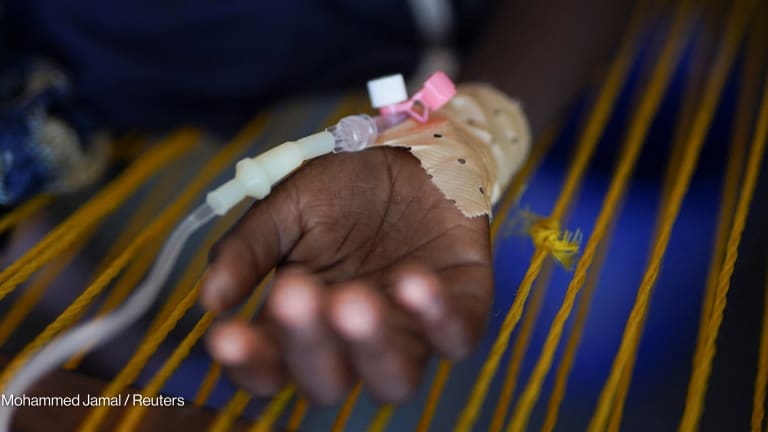Aid agencies are rushing to respond to a cholera outbreak that has hit two countries in central Africa in an effort to prevent it from spreading to densely populated regions.
The water-borne disease, which causes severe diarrhea and vomiting and can result in dehydration and death within hours if not detected and treated quickly, has already claimed 14 lives in the Central African Republic. The outbreak is reportedly concentrated in some 500 villages spread along the Ubangui river and in forest clearings.
A crisis coordination committee has been set up by the CAR government with UNICEF, the World Health Organization and non-governmental organizations such as Médecins Sans Frontières and Action Contre la Faim.
UNICEF has already sent specialists in the affected regions and has begun distributing cholera kits, which include oral rehydration salts, intravenous fluids and antibiotics. The agency aims to reach 60,000 affected people.
In Chad, more than 15,000 cholera cases have been reported since January in what the International Rescue Committee has called the worst outbreak of the water-borne disease to hit the country in more than a decade.
The agency is particularly worried about an outbreak of the disease in Chad’s eastern town of Abeche, where more than 200 cases have been reported. Abeche is the main transit point for nearby camps that host more than 260,000 refugees from Sudan’s Darfur region.
The IRC has set up a cholera treatment center in Abeche, which treats an average of 29 patients a day.
The organization said the cholera mortality rate in Abeche has dropped from 6 percent to just 1 percent since the launch of its emergency medical response.
Read more development aid news online, and subscribe to The Development Newswire to receive top international development headlines from the world’s leading donors, news sources and opinion leaders — emailed to you FREE every business day.








